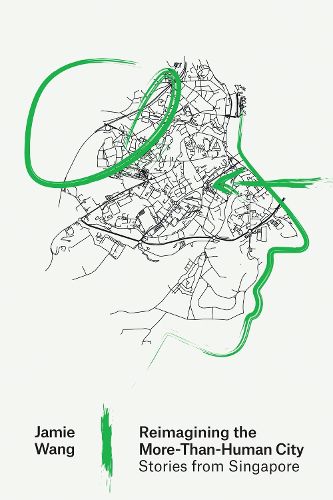Readings Newsletter
Become a Readings Member to make your shopping experience even easier.
Sign in or sign up for free!
You’re not far away from qualifying for FREE standard shipping within Australia
You’ve qualified for FREE standard shipping within Australia
The cart is loading…






An exploration of the multifaceted urban environmental issues in Singapore through a more-than-human lens, calling for new ways to think of and story cities.
An exploration of the multifaceted urban environmental issues in Singapore through a more-than-human lens, calling for new ways to think of and story cities.
As climate change accelerates and urbanization intensifies, our need for more sustainable and livable cities has never been more urgent. Yet, the imaginary of a flourishing urban ecofuture is often driven by a specific version of sustainability that is tied to both high-tech futurism and persistent economic growth. What kinds of sustainable futures are we calling forth, and at what and whose expense? In Reimagining the More-Than-Human City, Jamie Wang attempts to answer these questions by critically examining the sociocultural, political, ethical, and affective facets of human-environment dynamics in the urban nexus, with a geographic focus on Singapore.
Widely considered a model for the future of urbanism and an emblematic new world city, Singapore, Wang contends, is a fascinating site to explore how modernist sustainable urbanism is imagined and put into practice. Drawing on field research, this book explores distinct and intrarelated urban imaginaries situated in various sites, from the futuristic, authoritarian Supertree Grove, positioned as a technologically sustainable solution to a velocity-charged and singular urban transportation system, to highly protected nature reserves and to the cemeteries, where graves and memories continue to be exhumed and erased to make way for development. Wang also attends to more contingent yet hopeful alternatives that aim to reconfigure current urban approaches. In the face of growing enthusiasm for building high-tech, sustainable, and "natural" cities, Wang ultimately argues that urban imaginings must create space for a more relational understanding of urban environments.
$9.00 standard shipping within Australia
FREE standard shipping within Australia for orders over $100.00
Express & International shipping calculated at checkout
An exploration of the multifaceted urban environmental issues in Singapore through a more-than-human lens, calling for new ways to think of and story cities.
An exploration of the multifaceted urban environmental issues in Singapore through a more-than-human lens, calling for new ways to think of and story cities.
As climate change accelerates and urbanization intensifies, our need for more sustainable and livable cities has never been more urgent. Yet, the imaginary of a flourishing urban ecofuture is often driven by a specific version of sustainability that is tied to both high-tech futurism and persistent economic growth. What kinds of sustainable futures are we calling forth, and at what and whose expense? In Reimagining the More-Than-Human City, Jamie Wang attempts to answer these questions by critically examining the sociocultural, political, ethical, and affective facets of human-environment dynamics in the urban nexus, with a geographic focus on Singapore.
Widely considered a model for the future of urbanism and an emblematic new world city, Singapore, Wang contends, is a fascinating site to explore how modernist sustainable urbanism is imagined and put into practice. Drawing on field research, this book explores distinct and intrarelated urban imaginaries situated in various sites, from the futuristic, authoritarian Supertree Grove, positioned as a technologically sustainable solution to a velocity-charged and singular urban transportation system, to highly protected nature reserves and to the cemeteries, where graves and memories continue to be exhumed and erased to make way for development. Wang also attends to more contingent yet hopeful alternatives that aim to reconfigure current urban approaches. In the face of growing enthusiasm for building high-tech, sustainable, and "natural" cities, Wang ultimately argues that urban imaginings must create space for a more relational understanding of urban environments.